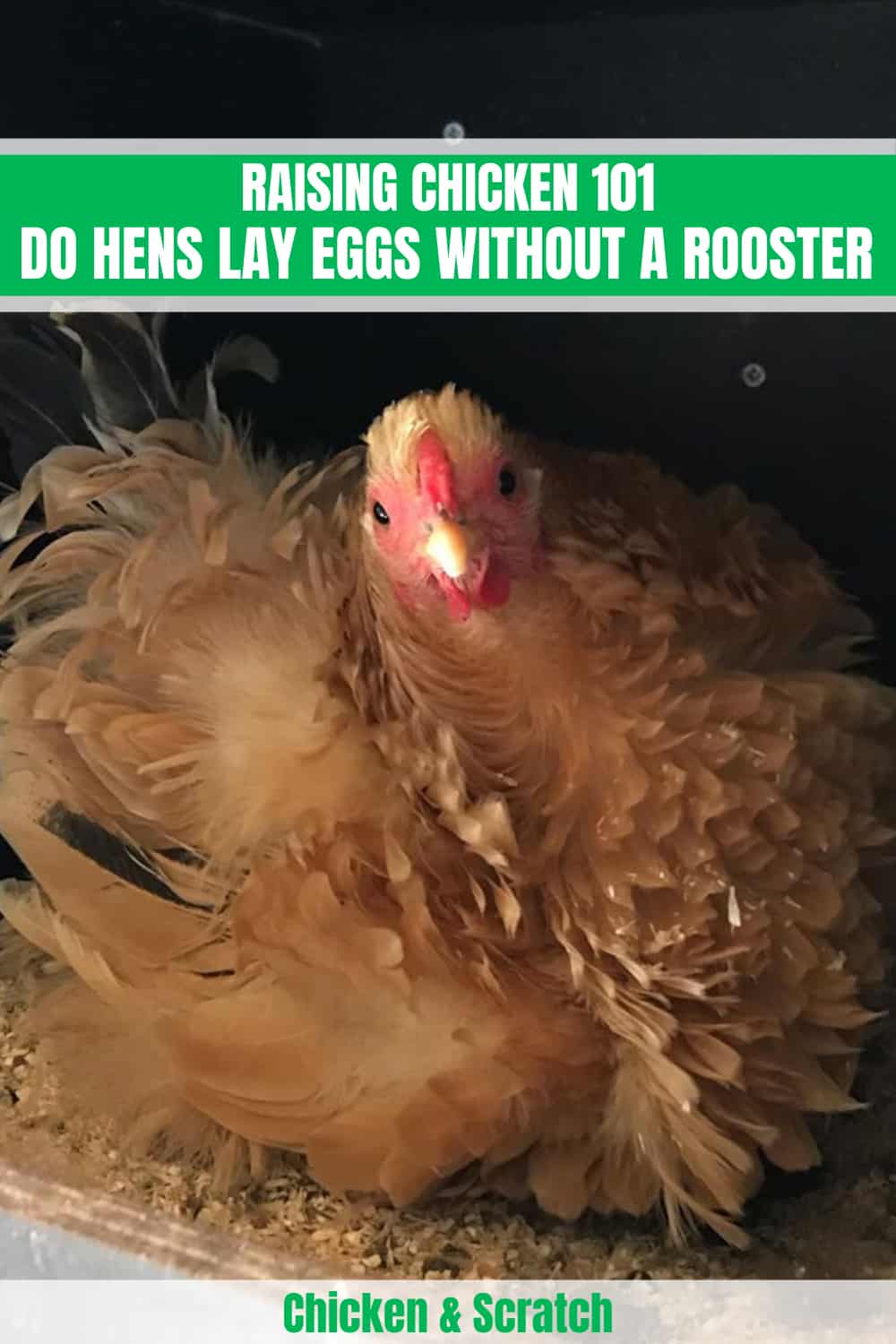Chickens make great backyard pets and the fact that they give back by delivering fresh, delicious eggs only adds to the allure of keeping them.
When you are looking forward to the moment when your chickens begin laying eggs it can be anxiety-inducing to wonder when that moment is going to come and what specific requirements are needed to get things going.
Do hens lay eggs without a rooster? This all depends on what you intend to accomplish with your egg-laying. There are a few factors to consider.
General Expectations in Egg Laying
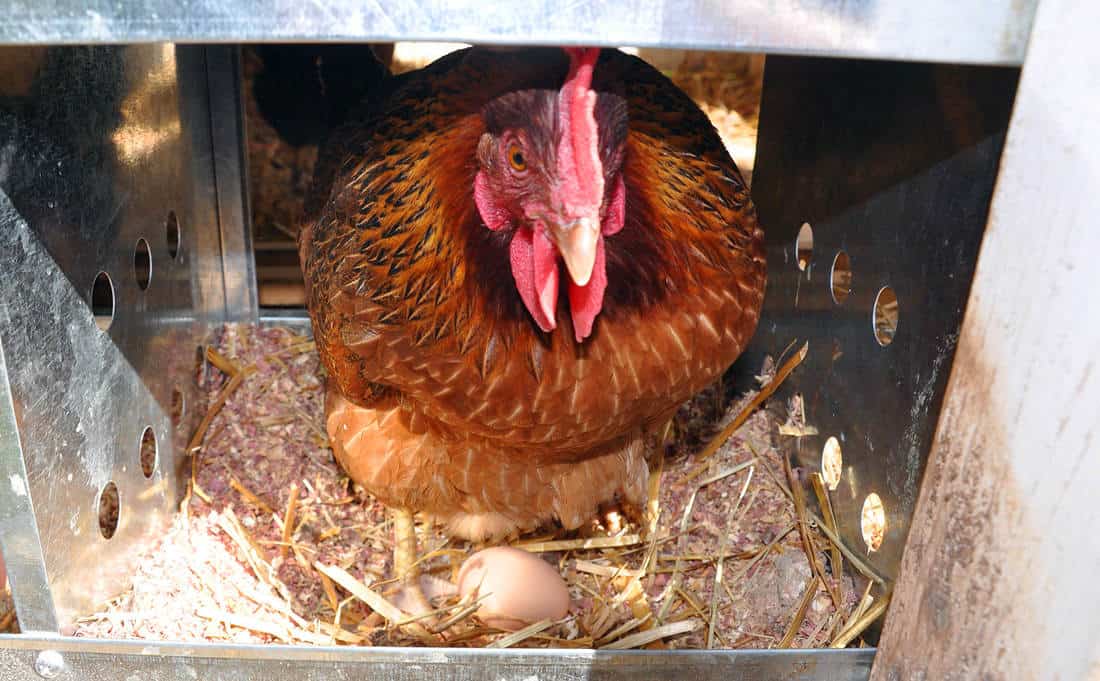
There are a few different elements that can play a role in whether your chickens will come “of age,” allowing them to lay eggs. Nutrition, environment, breed, and age can all help determine when your chickens will begin laying eggs. You will not require the assistance of a rooster for your chickens to produce eggs unless you specifically want to fertilize and hatch your eggs.
If you are looking to hatch eggs and produce more chickens, then you will require the assistance of a rooster. Otherwise, your eggs will never be fertilized.
However, the best setup is always one single solitary rooster and if you begin hatching your own eggs there is a chance you will hatch more roosters which may eventually grow up and fight with one another. The best reason to hatch eggs is for sustenance. Since the eggs we eat are not fertilized a rooster is not actually required.
There are a number of more essential factors when it comes to egg-laying beyond simply the presence of a rooster. While the presence of a rooster in the flock may help to encourage egg-laying, it is certainly not a determinate factor.
As noted above, the elements of a healthy egg-laying operation that you should certainly put stock into include good nutrition and a healthy environment.
Nutrition
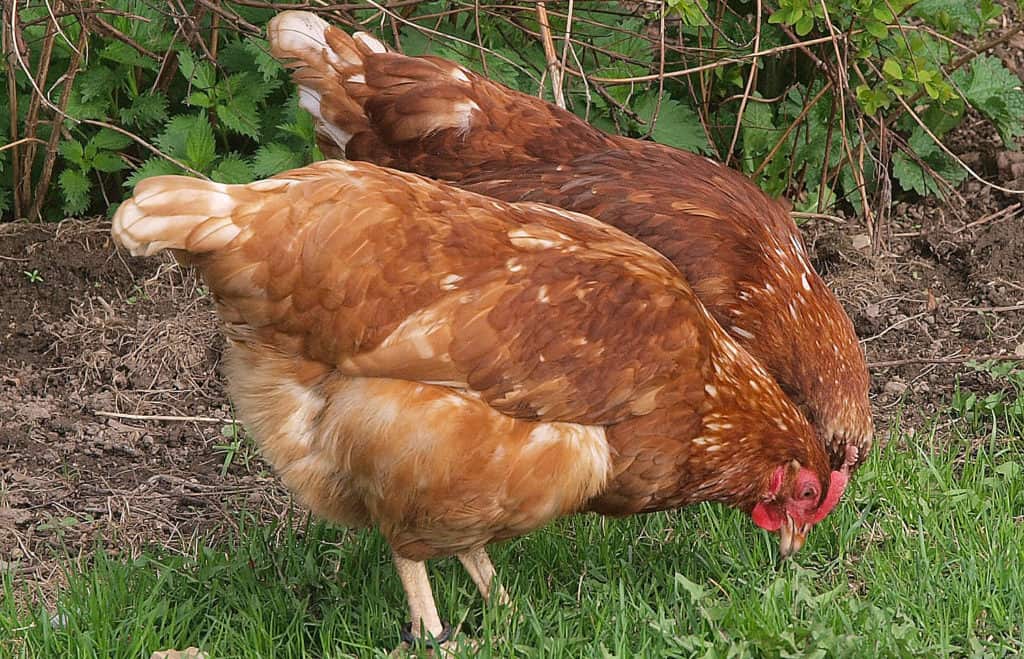
Egg laying chickens have specific nutrition requirements as opposed to younger chickens or chickens perhaps not intended for laying eggs. In order to promote egg laying it is important for your chickens to have sufficient food provided to them as well as to have high-quality food provided to them.
During the growing period, chicks should receive a diet promoting their rapid growth and development of feathers. Chickens reaching the laying stage do best on a “pre-lay” diet intended to increase the calcium and other nutrients in their diet.
Comparison shop different diets available to you to determine which is most suitable for your purposes. A diet with the right nutrients for egg-laying purposes will supply your hens with what they need to produce big, nutritious eggs.
A balanced diet is primarily important. If the chickens are not receiving adequate nutrition, then one of two things could happen. Either (1) your hens may experience delay in their egg-laying, or (2) they may stop laying eggs even once they’ve started.
Environment
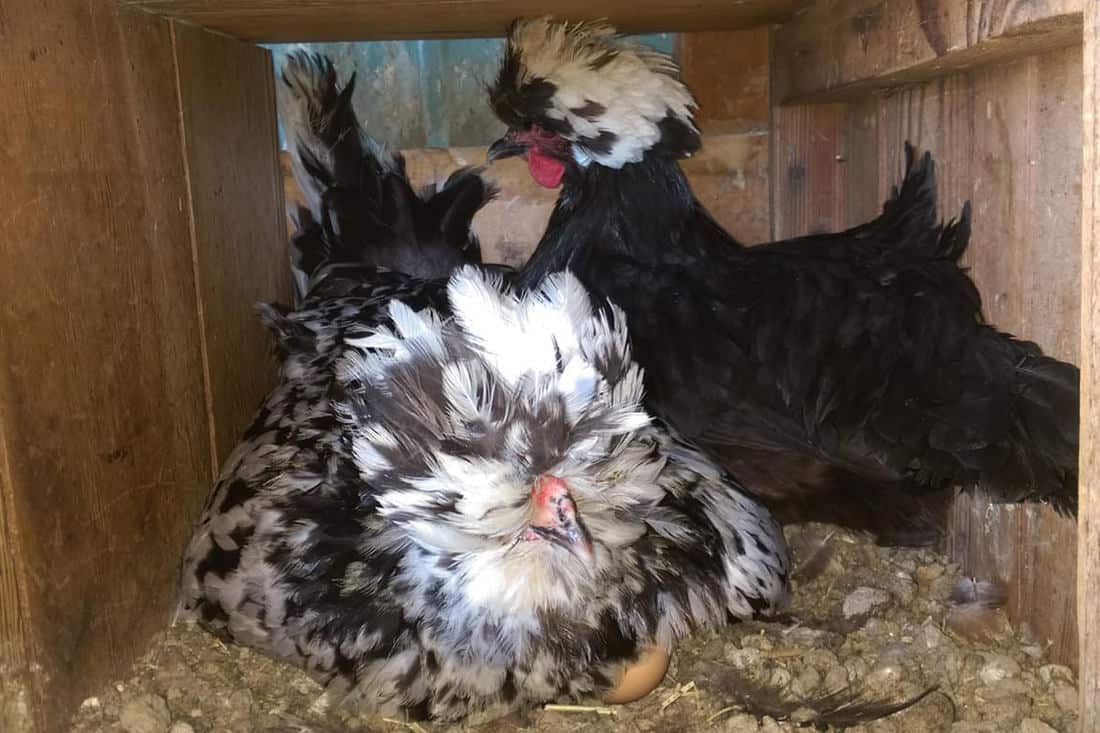
An adequate environment is also essential to promoting laying in your chickens. This includes providing ample lighting, comfortable temperatures, adequate food, and ample water for the hens at all times.
- If the hens run out of food for a substantial period of time it can impact their laying schedule and may delay how soon they begin laying. You should take care to ensure your hens always have fresh food available.
- The same is true for water, which is one of the most essential nutrients for optimum poultry health. Fresh, clean water should always be available to your hens. Make sure that you keep the water clean and fresh on a daily basis as dirty water is a breeding ground for bacteria that can lead to health issues for your poultry.
- In order to maintain healthy egg production, hens should receive around 14 hours’ worth of day length each day. The lighting intensity should be such that a person could read newsprint at the eye level of the birds. Because the length of the day naturally decreases in the fall and winter, this can have a profound impact on egg laying ability. One way that you can prevent this from being a problem is to install a light in the coop to artificially increase daylight hours.
- Chickens do not do well in high environmental temperatures. They will succumb quickly to severe heat stress if you do not provide them with proper shade, ample water, and adequate ventilation. You can reduce the adverse effects that come with heat stress by providing enough ventilation and shade as chickens naturally do better in a cooler environment. As a result, it is likely that your hens will lay more effectively in a cooler, more comfortable environment.
- The breeding box or coop should be kept as clean as possible in order to promote healthy egg-laying. It may be difficult to keep things clean during the laying season but it is important to try because a dirty coop can be a breeding ground for bacteria and other diseases and chickens can be prone to illness when improperly cared for.
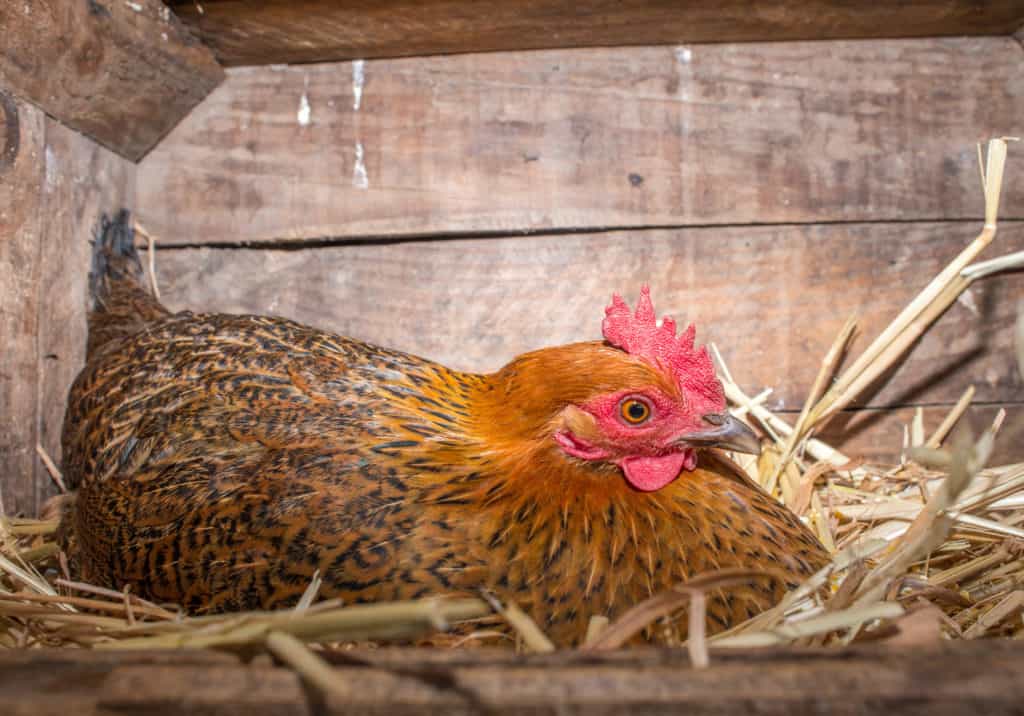
Age
Generally speaking, hens will begin to enter their egg-laying period around 18 weeks of age, however, as noted above this can vary somewhat depending on the breed of the chicken. The peak age for egg-laying comes at around 32 weeks of age and continues at this level until around 65 to 68 weeks of age.
There are breeds of chicken that will not begin laying eggs until a little later and so it is normal not to see egg-laying behavior begin until around six months. This will be discussed more fully in the “breed-specific” section below.
Hen’s Behavior During Laying
The behavior of your pullets will begin to change when they are nearing their initial lay, and so it is normal to get a feel for when this is going to happen. They may begin to investigate the nesting area, spend more time hanging around the rooster, or their typical behavior may simply deviate in other ways.
If your hens are starting to spend a lot of time with the rooster because they are nearing laying-age, you may need to make sure to separate the rooster from the nesting boxes
If your hens seem unsure about the nesting boxes one way that you can encourage their use is to place “decoy eggs” in the boxes in order to show the hens what they are meant for. If you do not have actual decoy eggs you can use golf balls or similarly sized balls to serve this purpose.
There are a lot of great resources available for building and setting up nesting boxes that will accommodate your chickens. There are also nesting boxes that will provide your hens with access to the rooster without compromising the eggs.
If your goal is to have your hens lay eggs, then it is important to motivate your chickens to lay by allowing them access to a rooster without necessarily allowing the rooster to fertilize the eggs.
In fact, once your hens begin laying you may find that having a rooster around does not motivate your hens to lay one way or another. You will not find that you can increase your hen egg production simply by exposing your hens to a rooster. You can have a perfectly healthy flock of egg-laying chickens all on their own without having any roosters around.
Do You Need a Rooster For Egg Production?
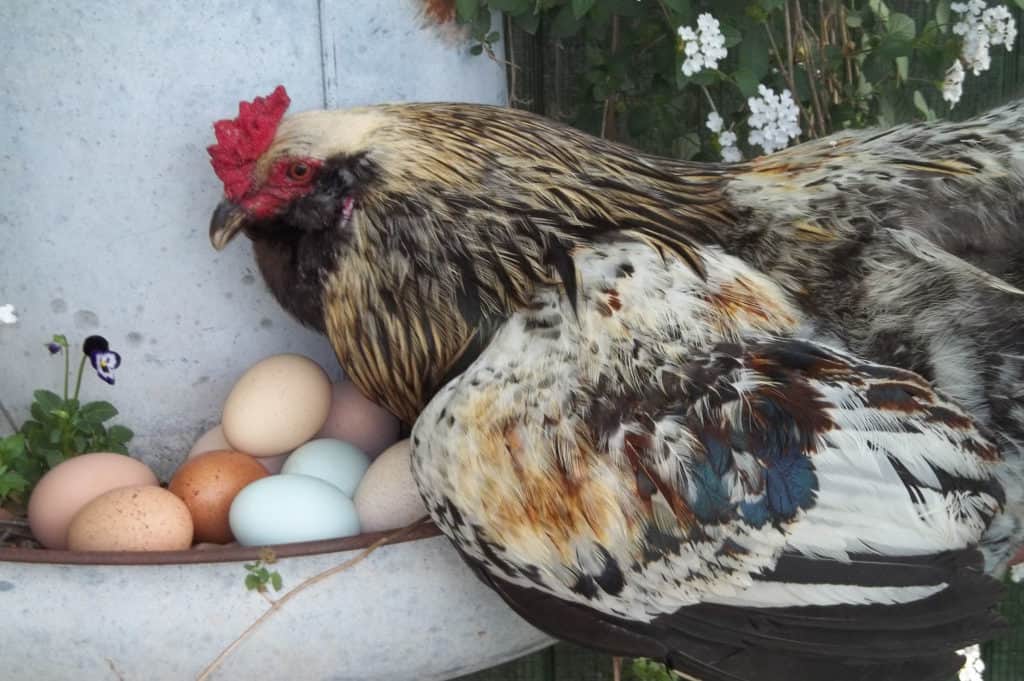
The ultimate answer is no, you do not need a rooster in order to raise egg-laying chickens. You will not notice an impact in egg production by adding a rooster to your flock of chickens, however, there are obviously other benefits of having a rooster around if you enjoy their presence. As noted above, however, it is important to only keep one adult rooster around at a time to prevent fighting from occurring.
Making the Decision to Get a Rooster
As noted above, when you fertilize your eggs and allow them to hatch into new chickens you run the risk of adding additional roosters to your flock.
When roosters are young it is possible for you to keep them together, however as they get older, they will begin to fight to the point where injuries are inevitable. The male birds can be beneficial for meat however you will need to know how to house them separately and how to handle them humanely if this is the route you take.
If you are interested in expanding your flock, there are other options available to you. Consider sourcing local chicks and hens for example rather than attempting to breed your own.
If you do decide to breed your own chickens then it will benefit you to do some additional research on what this entails and to find an outlet to sell or give away any additional male chicks before they come of age.

Joseph Hudson has been raising chickens for over 15 years. In 2018, he completed the Agriculture & Natural Resources program at Mt. San Antonio College. He currently raises over 1400 chickens on his 7.5-hectare farm. He keeps sharing his experience on raising healthy and happy chickens on Chicken Scratch The Foundry.
